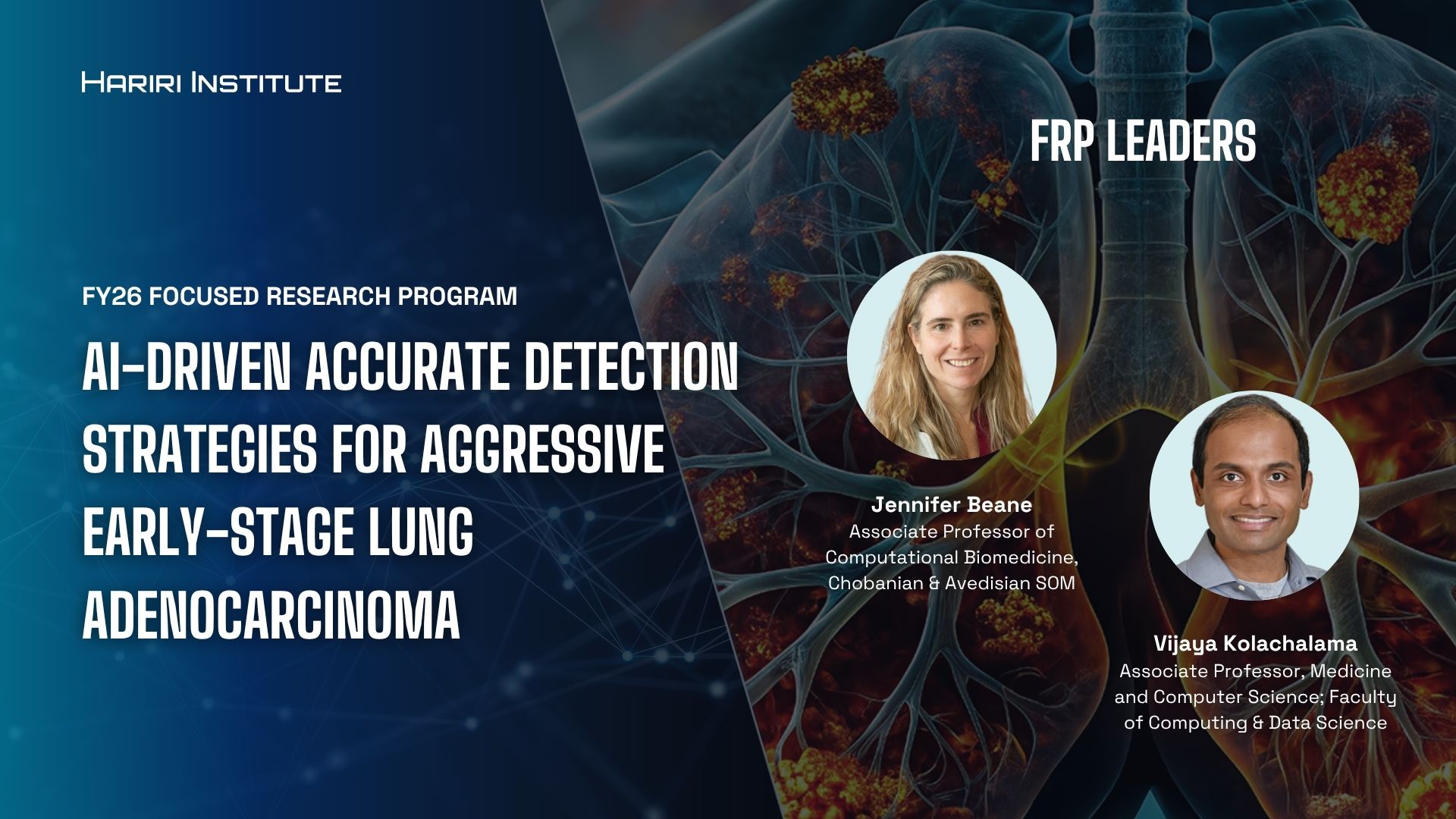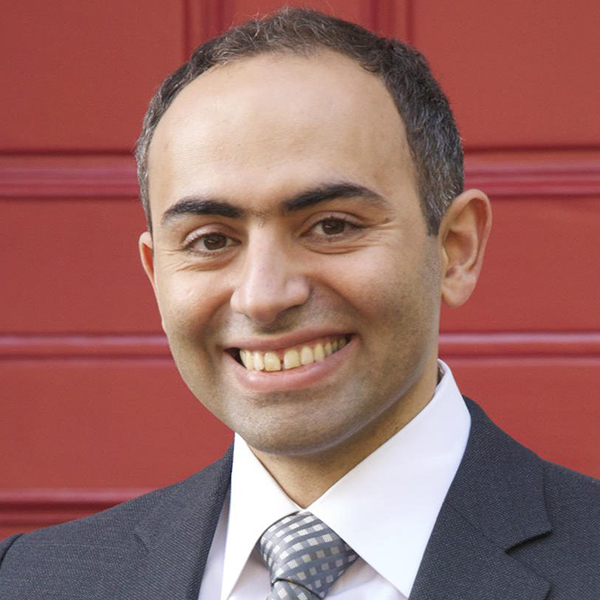AI-driven Accurate Detection Strategies for Aggressive Early-stage Lung Adenocarcinoma
Focused Research Program
Our Focus
Vascular invasion (VI) — tumor cells within blood or lymphatic vessels — is a critical prognostic marker in early-stage lung adenocarcinoma (LUAD), the most common type of lung cancer both globally and in the U.S. The goal of this FRP is to develop a biomarker that can predict microscopic VI in both lung resection tissues and pre-surgical biopsies using digitized hematoxylin and eosin (H&E) stained slides which are part of the standard pathology workflow. This work requires a convergent research approach between a multidisciplinary team of investigators with expertise in thoracic pathology, computer vision, and bioinformatics, drawing researchers across Boston Medical Center, Chobanian and Avedisian School of Medicine, College of Engineering, and the Faculty of Computing and Data Sciences (CDS).
Focused Research Program led by:
Dr. Jennifer Beane-Ebel, Associate Professor of Computational Biomedicine, Chobanian & Avedisian School of Medicine
Dr. Vijaya Kolachalama, Associate Professor of Medicine and Computer Science; Founding Member of the Faculty of Computing and Data Science
Research Thrusts
1. Developing an AI-ready dataset for lung cancer
This thrust will create a curated collection of presurgical biopsies and resection tumor tissue from patients with stage I LUAD that includes clinical, radiology, and pathology data. This digital atlas will build off a multi-center retrospective cohort of stage I LUAD specimens and contain clinical data, radiologic assessment of low-dose CT scan(s), low-dose CT scan(s), pathologic assessments of tissue, digitized whole slide images (WSIs) of stained tissue specimens, bulk gene expression profiling, and spatial transcriptomic profiling of resected lung specimens.
Thrust Leader
Core Faculty
Affiliated Faculty
2. Multimodal AI-models for lung cancer prognosis
This thrust aims to leverage AI and machine learning to develop, train, and test models to learn from multimodal data from lung resection tissues to make tissue sufficiency and prognostic predictions on digitized whole slide images of pre-surgical biopsies.
Thrust Leader
Core Faculty
Affiliated Faculty
Thrust 3. Identification of the biological underpinnings of aggressive lung cancer
The thrust’s goal is to provide model explainability, and identify cellular neighborhoods and gene expression patterns associated with the model’s prediction of vascular invasion in resected tissue. This information will be used to understand the model’s performance in predicting the presence of vascular invasion in pre-surgical biopsies.
Thrust Leader
Core Faculty
Affiliated Faculty
Sponsor
This Focused Research Program is funded by the Hariri Institute for Computing and Computational Science & Engineering.
How to get involved?
For program specific inquiries and questions, please contact FRP leaders: Jennifer Bean or Vijaya Kolachalama.
Faculty interested in submitting a Focused Research Programs proposal are strongly encouraged to discuss their ideas with Yannis Paschalidis, director of the Hariri Institute for Computing.
To learn more details about the Hariri Institute’s Focused Research Programs, visit here.













